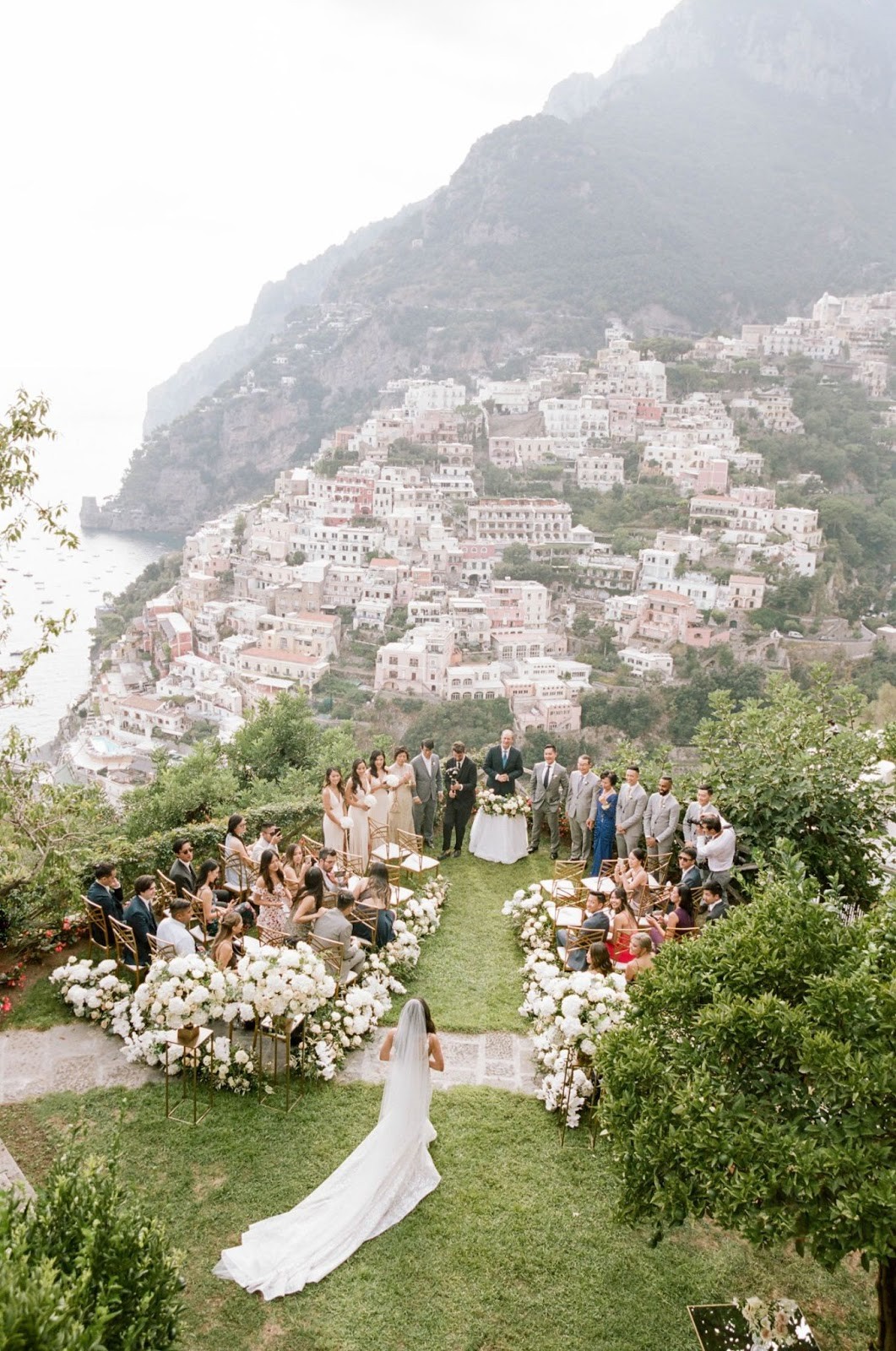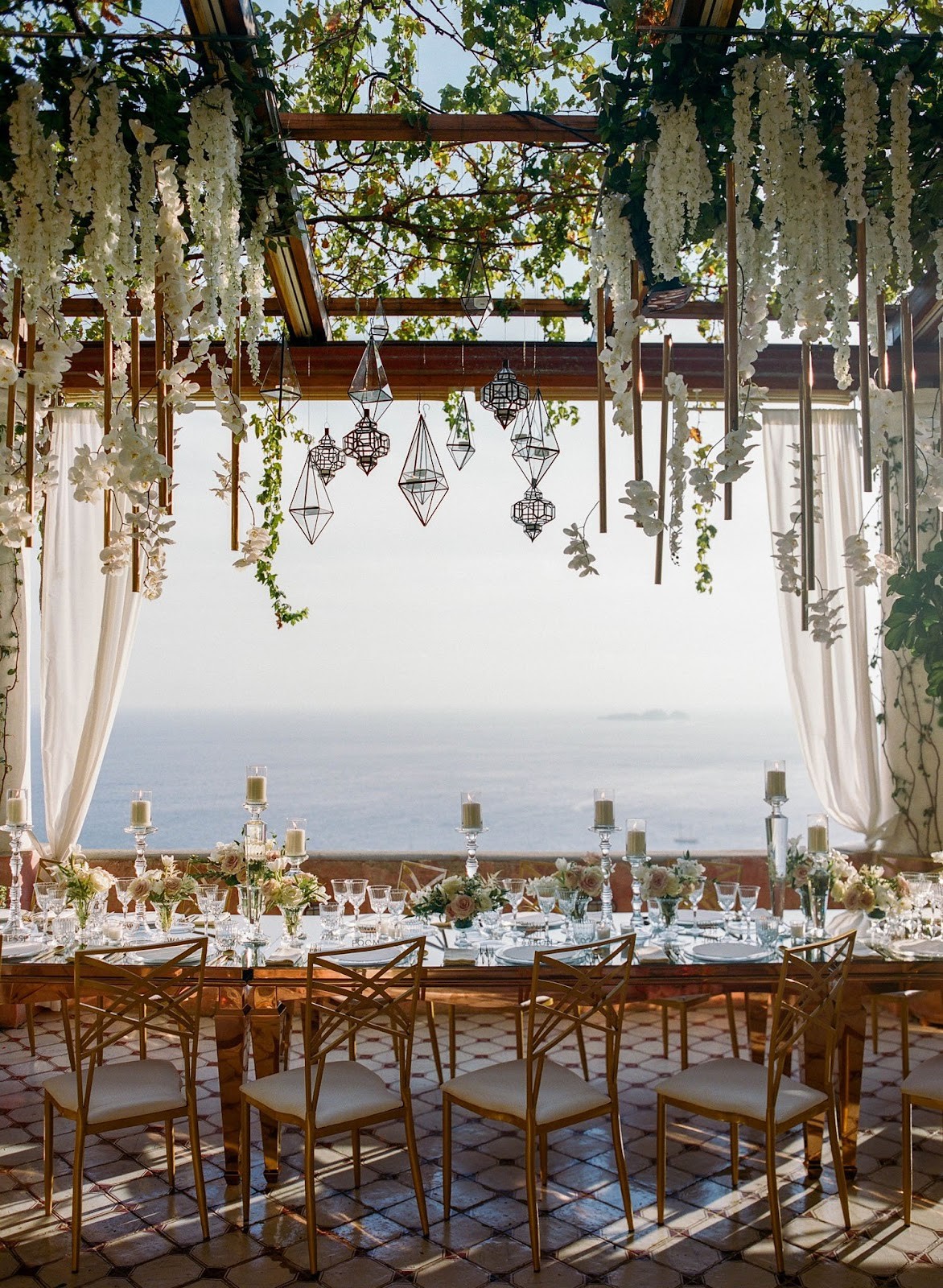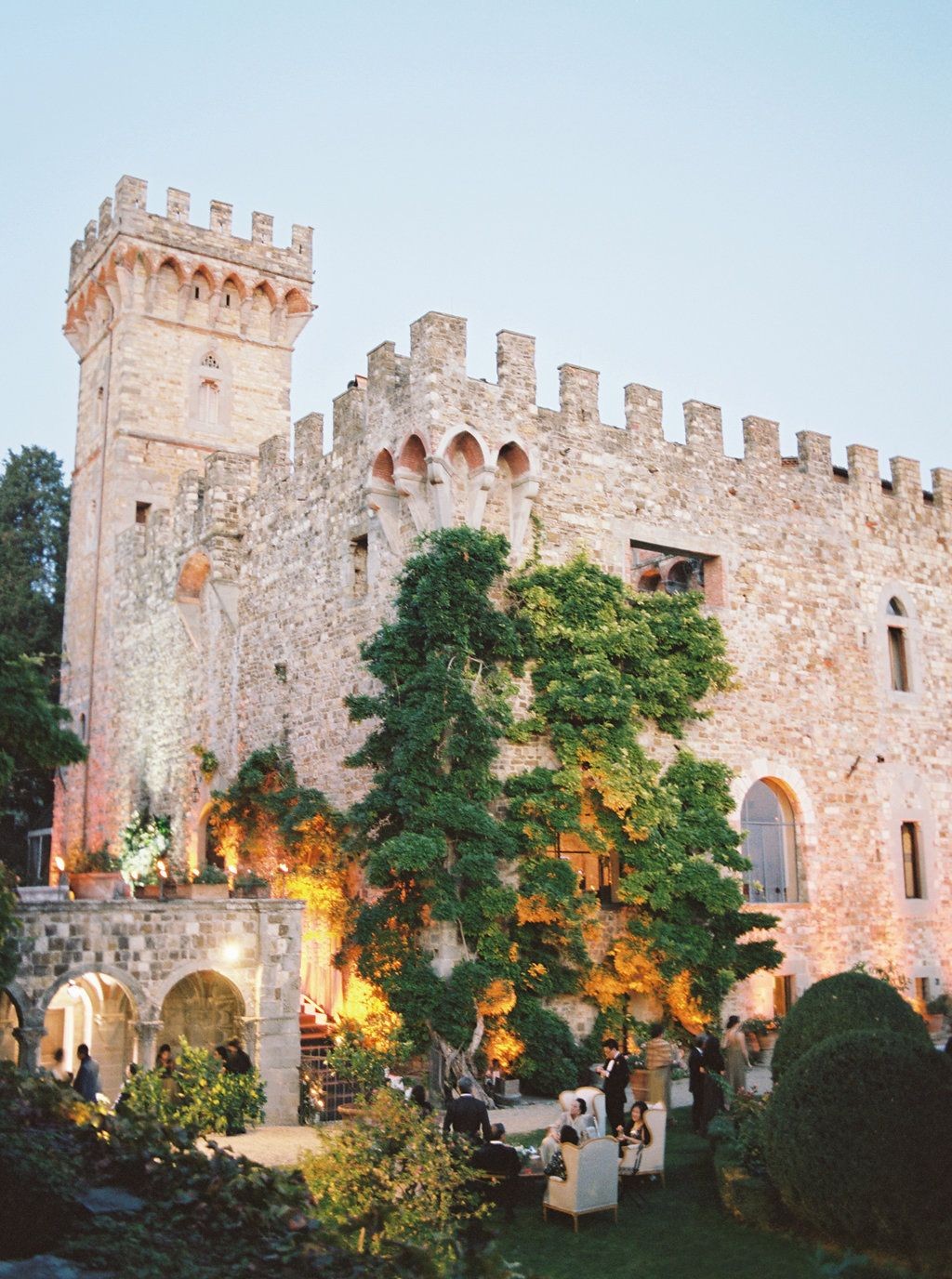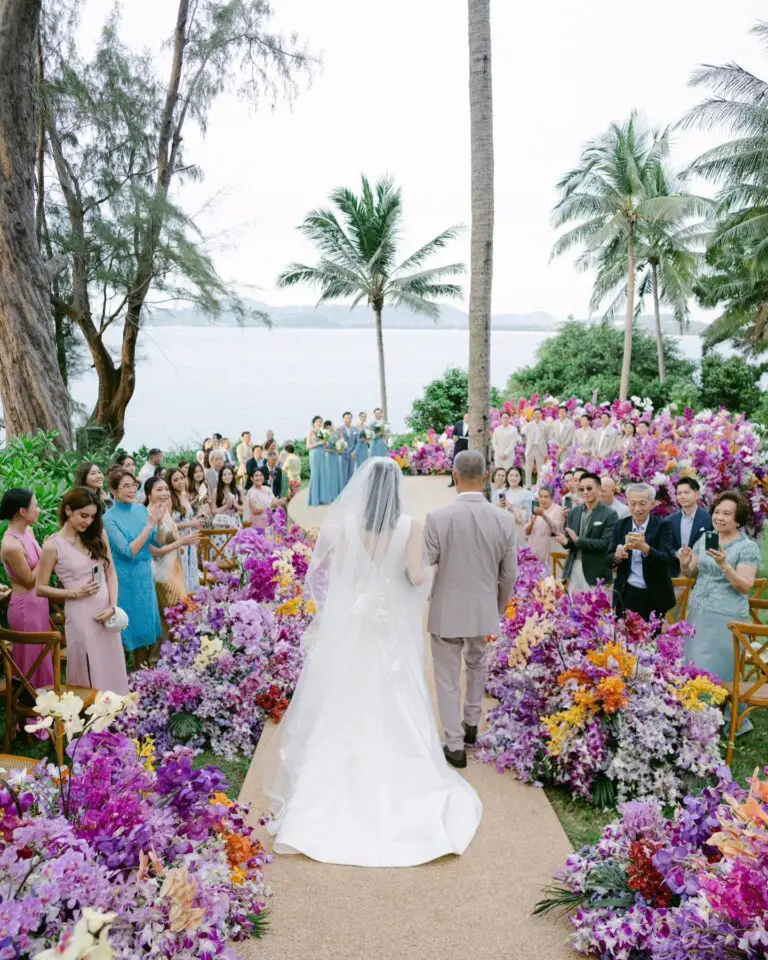How To Plan A Destination Wedding In Italy If Youre Overseas
Imagine exchanging vows in the picturesque Tuscan countryside, surrounded by rolling hills and vineyards. Planning a destination wedding in Italy from overseas may seem daunting, but with the right approach and insider tips, you can bring your romantic Italian wedding vision to life. In this article, we’ll walk you through the process of planning a stress-free destination wedding in Italy, no matter where you are in the world.
To get started, consider the perfect location for your special day. Italy is home to countless charming towns and cities, each with its own unique charm. From the romantic canals of Venice to the sun-kissed beaches of the Amalfi Coast, there’s an Italian destination that’s sure to captivate you.
Next, don’t underestimate the importance of hiring a local wedding planner.
With their insider knowledge and expertise, they’ll help ensure every detail is taken care of, from finding the perfect venue to arranging transportation and accommodations for your guests.
Understandably, legal requirements may seem overwhelming when planning a destination wedding in Italy. Rest assured that our comprehensive guide will walk you through each step of the process, ensuring that your marriage ceremony meets all necessary legal requirements.
Before finalizing any details, take some time to visit your chosen destination. This will give you a chance to experience the culture, meet with potential vendors, and get a feel for the lay of the land.
Finding the perfect venue is crucial to making your Italian wedding vision a reality. From historic villas to seaside resorts, Italy has an abundance of unique venues that are sure to impress.
Of course, no discussion of Italian cuisine would be complete without mentioning the incredible food and wine on offer. From classic pasta dishes to decadent desserts, your guests will surely delight in the culinary delights Italy has to offer.
Budget considerations are also essential when planning a destination wedding in Italy. With careful planning and budgeting, you can create an unforgettable celebration that fits within your means.
To truly make your Italian wedding experience unique, consider customizing certain elements of the day, such as personalized stationery or specialty cocktails.
Finally, don’t forget to plan for your guests’ travel and accommodations. From recommending local hotels to arranging transportation, we’ll provide you with all the necessary information to ensure a stress-free trip for your loved ones.
By following these simple steps and tips, you can rest assured that your Italian destination wedding will be an unforgettable celebration of love and commitment.
How to Plan a Destination Wedding in Italy if You’re Overseas
Choose the Perfect Location

Italy is a treasure trove of enchanting wedding locations, each boasting its own distinct character. From the romantic grandeur of Florence and Rome, to the picturesque Amalfi Coast, rolling hills of Tuscany, and serene shores of Lake Como, couples can discover an array of settings that perfectly capture their special day’s essence.
To make your selection, delve into the ambiance, local attractions, and venue options unique to each location, ensuring the ultimate union reflects your wedding vision.
Hire a Local Wedding Planner

When it comes to planning a destination wedding, partnering with a reputable local wedding planner is an essential step. With their expertise, established connections, and intimate knowledge of the area, they can help streamline your planning process. A reliable wedding planner will be able to guide you through selecting the perfect venue, navigating legal requirements, coordinating vendors, and managing logistics, ultimately reducing stress and saving you valuable time.
Understand Legal Requirements
As a non-resident planning a destination wedding in Italy, it’s crucial to understand the legal requirements involved. Typically, you’ll need to provide specific documents to obtain a marriage license. These may include a declaration of intent to marry, birth certificates, and valid passports. For instance, the Declaration of Intent to Marry, also known as a ‘Nulla Osta’ or ‘Certificate of No Impediment’, is usually obtained from your local embassy or consulate in Italy.
This document serves as proof that you’re free to marry. You’ll also need to provide original birth certificates, which should be translated into Italian and authenticated. The translation and authentication process can be done through an official translator or apostille, depending on the region’s requirements. Furthermore, ensure your valid passports will remain valid for at least six months after the wedding date.
Additionally, you may need to furnish a Single Status Affidavit, which is a sworn document stating your single status and eligibility to marry. If either you or your partner were previously married, you’ll likely require divorce decrees or death certificates to prove the termination of previous marriages. Finally, be aware that translations and apostilles might be necessary for certain documents, particularly if your nationality or region in Italy differs from the norm.
It’s essential to consult with your wedding planner or local authorities in your chosen wedding destination to verify the specific requirements for your unique circumstances.
Visit the Destination
Before finalizing any plans for your special day, consider paying a pre-wedding visit to your chosen destination. This hands-on approach will grant you the opportunity to walk through potential venues, meet face-to-face with vendors, and hammer out all the intricate details. However, if a physical visit isn’t in the cards, utilize video conferencing technology to connect with your wedding planner and key vendors.
By doing so, you’ll gain a more intimate understanding of the venue’s layout and offerings, as well as the professionals who will bring your vision to life.
Find the Perfect Venue


Italy is famous for its enchanting settings, featuring historic villas, vineyards, castles, and seaside resorts. Your dream wedding begins with selecting the perfect venue that reflects your personal style and accommodates your guest list. When choosing a location, consider factors such as ceremony and reception spaces, on-site accommodations, catering options, and ambiance.
With its breathtaking coastline, picturesque towns, and stunning Mediterranean views, the Amalfi Coast is an idyllic setting for a romantic wedding. Imagine exchanging vows overlooking the azure waters or celebrating in a cliffside villa with panoramic views. Tuscany offers a rustic and elegant backdrop for weddings, featuring rolling hills, vineyards, and historic cities like Florence and Siena.
Consider saying ‘I do’ in a charming countryside villa or restored farmhouse surrounded by vineyards, followed by a reception featuring Tuscan cuisine and renowned local wines. Lake Como is nestled in the Italian Alps, boasting breathtaking scenery and glamorous atmosphere. Imagine a lakeside ceremony in a luxurious villa or historic castle, followed by a boat ride for you and your guests, and a reception on the terrace overlooking the serene lake.
Italy’s numerous castles can be rented for exclusive weddings, adding a touch of medieval grandeur to your special day. Venice offers a unique setting for a destination wedding, featuring historic Venetian palazzos overlooking the canals, traditional gondolas, and lavish receptions immersed in charm. Finally, Sicily combines history, culture, and stunning landscapes, offering a diverse range of venues for an unforgettable wedding experience.
Explore Italian Cuisine


When planning an Italian destination wedding, don’t overlook the rich culinary heritage of Italy. While pasta and pizza are undeniable crowd-pleasers, exploring regional specialties and local flavors can elevate your menu to new heights. Here are some key considerations for crafting a memorable culinary experience at your wedding:Regional Cuisines: Each region in Italy boasts its own unique culinary identity.
Consider incorporating local specialties into your menu, such as Tuscany’s famous bistecca alla fiorentina or Sicily’s arancini and cannoli. By embracing the diversity of Italian cuisine, you’ll be able to tantalize your guests’ taste buds with a range of flavors. Antipasti Selection: Begin your reception with an array of antipasti, showcasing Italy’s rich tradition of cured meats, cheeses, marinated vegetables, and bruschetta.
This selection will not only delight your guests but also provide a glimpse into the country’s culinary heritage. Seafood Delights: If your wedding is taking place by the coast, take advantage of the fresh seafood options available. Grilled or baked fish, seafood risotto, and even raw bars with oysters and shrimp are sure to impress. Farm-to-Table Ingredients: Italy is renowned for its emphasis on locally sourced ingredients.
Collaborate with your caterer to create a menu that highlights seasonal produce, artisanal cheeses, and high-quality meats. By incorporating ingredients from local farmers’ markets, you’ll be able to add an authentic touch to your dining experience. Desserts and Dolci: End your celebration on a sweet note by offering a variety of Italian desserts.
Classics like tiramisu, panna cotta, and cannoli are always crowd-pleasers, while traditional wedding cakes with Italian influences, such as millefoglie or torta caprese, offer a unique twist. Wine Pairings: Italy is famous for its exceptional wines. Consult with a sommelier or your wedding planner to curate a selection of Italian wines that pair perfectly with your menu.
From crisp whites in the north to bold reds in Tuscany and rich dessert wines in Sicily, there’s a wine to suit every palate and enhance the dining experience.
Budget Considerations


When planning a destination wedding in Italy, it’s essential to factor in the typical costs associated with various vendors. Keep in mind that these expenses can fluctuate depending on factors such as location, venue, and level of services chosen. As a guide, here are some average cost ranges for common wedding vendors in Italy:Venues: Rental fees for venues in Italy typically fall between €4,000 and €15,000, influenced by factors like popularity, amenities, and location.
Catering: With Italian cuisine renowned for its quality, catering costs range from €100 to €300 per person, depending on the menu, number of courses, and level of service. For example, a multi-course meal with premium ingredients could cost more than a simpler buffet-style option. Photography and Videography: Professional wedding photographers in Italy typically charge between €1,500 and €4,000 or more, influenced by their experience, reputation, and coverage duration.
Similarly, videography services can range from €1,500 to €4,000 or more, depending on the length of coverage, style of video, and additional features like drone footage or same-day edits. Wedding Planners: Hiring a wedding planner is highly recommended for destination weddings in Italy. Wedding planner fees usually fall between 10% and 15% of your overall wedding budget, which can vary greatly depending on the specifics of your celebration.
Floral Arrangements: The cost of floral arrangements in Italy can range from €1,500 to €5,000 or more, influenced by factors like flower type, design complexity, and wedding size. Music and Entertainment: Hiring live musicians or a DJ for your Italian wedding can cost between €1,000 and €3,000, depending on the number of performers, coverage duration, and any additional equipment required.
Wedding Cake: The cost of an Italian wedding cake typically ranges from €300 to €800, influenced by factors like size, design, and complexity. Transportation: Transportation expenses can vary significantly, ranging from €500 to €2,000 or more, depending on the distance between venues and number of guests. These costs include services like airport transfers, shuttle services, and transportation for the wedding party.
Remember that these are average cost ranges, and actual expenses may differ based on your specific preferences and location in Italy. It’s crucial to discuss details with your wedding planner and vendors to get more accurate estimates tailored to your needs.
Customize Your Italian Experience

To infuse your special day with the charm of Italy, consider incorporating elements of Italian culture into your wedding celebration. This can be achieved by combining authentic Italian cuisine, wine, music, and traditions with your own personal style. To ensure a seamless incorporation of these elements, seek guidance from your wedding planner and embrace local customs.
Here are some ideas to get you started:
Capture the essence of la dolce vita with activities like wine tastings or cooking classes for your bachelorette party. For your menu, feature a selection of Italian dishes such as bruschetta, antipasti, handmade pasta, and regional specialties, accompanied by traditional desserts.
Elevate the atmosphere with local musicians playing traditional Italian music and encourage your guests to join in the lively tarantella dance.
To symbolize the blending of your lives, consider an olive oil ceremony where you mix two types of olive oil in a decorative vessel.
Add a touch of whimsy with confetti showers or small colorful candies that reflect the festive spirit of Italian celebrations. For a meaningful memento, offer bomboniere, traditional Italian wedding favors such as sugared almonds or personalized items reflecting Italian culture.
Guest Accommodations and Travel

When planning a wedding, it’s essential to consider the travel logistics of your out-of-town guests. One way to make their experience more enjoyable is by providing detailed information about accommodations, local transportation options, and nearby attractions. To take it a step further, you could even arrange group rates with preferred hotels or recommend local activities and tours for your guests to enjoy during their stay.
A dedicated wedding website or information packet can be a valuable resource that keeps all the essential details in one place, making it easy for your guests to plan their trip.
Plan for the Unexpected
When it comes to planning a seamless wedding day, the unexpected can always throw a wrench in the works. To mitigate this risk, it’s crucial to anticipate potential setbacks, such as sudden changes in weather, travel disruptions, or last-minute vendor adjustments. By maintaining a proactive approach and fostering open communication with your wedding planner, you’ll be well-equipped to tackle any unforeseen challenges that may arise.
Your planner can serve as a valuable problem-solving partner, providing creative solutions to help keep your special day on track.






